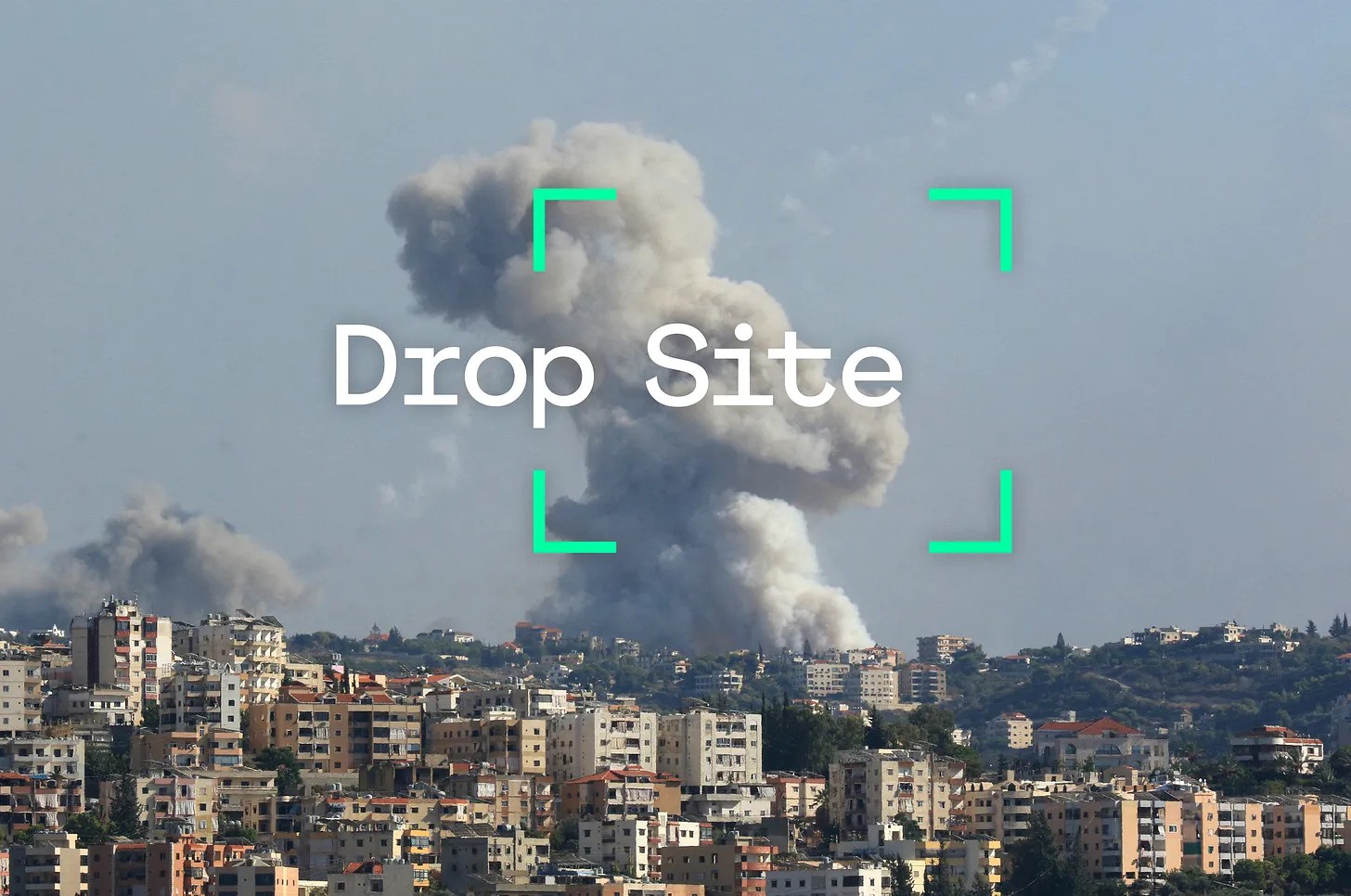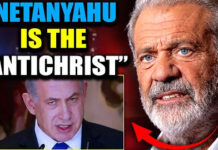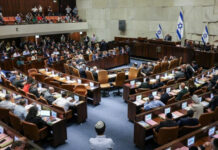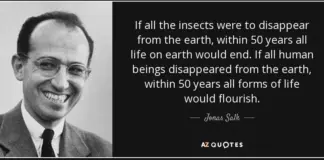Israel launches largest attack on Lebanon since its 2006 invasion, kills hundreds including children
On Monday, Israel engaged in its most deadly attacks in Lebanon since its 2006 invasion of the country, striking heavily populated areas throughout southern Lebanon—including hitting medical centers and ambulances, according to the Lebanese health minister—and expanding its attacks to Beirut and the Bekaa Valley in the east. The Israeli strikes included the targeting of a high-rise building in the Beirut suburb of Dahieh, reportedly aimed at killing Ali Karaki, a senior commander in Hezbollah. The group released a statement saying Karaki was “in full health and wellness and has moved to a safe place.” By evening local time, the death toll in Lebanon reached 492 people—including at least 35 children—with more than 1,600 injured, as some Israeli officials threatened the prospect of a Gaza-style war of annihilation against Lebanon.
Earlier in the day, local residents began receiving text messages and calls with audio recordings warning them to leave their homes and villages. The Israeli military maintains that its assault, which it claims hit 1,300 “targets,” is aimed at destroying Hezbollah’s weapons supplies and rocket launch facilities. The roads out of the south were jammed on Monday afternoon as people attempted to flee Israel’s bombs. The Associated Press called it “the biggest exodus since 2006.” Schools and universities have closed throughout the country and Lebanese authorities are opening up educational facilities to shelter the displaced.
The IDF’s Arabic-language spokesperson Avichay Adraee also posted several ominous messages on Twitter, also known as X, instructing people to leave their homes, including in the Bekaa Valley region. “If you are inside or near a house containing Hezbollah weapons- you must leave it and move away from it within two hours to a distance of no less than 1,000 meters outside the village, or go to the central school near you and do not return until further notice,” he wrote, adding, “Anyone who is near Hezbollah elements, facilities, and weapons is putting his life and the lives of his family members at risk.” Israeli forces subsequently bombed the area.
Civilians cannot be expected to know where weapons stores might be—adding to the sense that Israel is carrying out a “psychological war,” as Lebanon’s official news agency called it, in addition to a harsh bombing campaign. While the IDF has portrayed these orders as humanitarian-motivated evacuation warnings, it has issued identical communications throughout its 11-month war against the Palestinians of Gaza only to later bomb areas to which it told residents to flee.
“People have seen what’s happened in Gaza and they know that the Israelis are fully capable and they understand that basically the West has given up even pretending to do anything about it,” said Karim Makdisi, a professor of international politics at the American University in Beirut. “There’s no reason to believe that the Israelis will not go ahead and basically try to empty out a large section of the south and try to make the whole place totally uninhabitable for the foreseeable future.”
As Israel resumed its attacks on Monday, Hezbollah escalated its own operations, launching hundreds of rockets at the Ramat David base and other military sites across northern Israel, while claiming to have attacked an industrial complex near Haifa. Videos on social media also showed Hezbollah missiles striking east of Tel Aviv near several illegal settlements in the West Bank, farther than the group has targeted in any previous conflict. Israel’s Home Front Command declared an internal state of emergency known as a “special situation,” citing the “likelihood” of attacks on civilian areas allowing the government to exert expanded authority over civilian life for the next 48 hours.
After an entire day of intense andsustained attacks, Prime Minister Benjamin Netanyahu released a video on social media. In his “message for the people of Lebanon,” Netanyahu claimed that “Hezbollah has been using you as human shields” as it fires rockets at Israel. The Israeli prime minister also characterized the massive bombings in Lebanon Monday as defensive. The “IDF has warned you to get out of harm’s way,” he said in the tenor of a governor issuing a warning about a hurricane, rather than the leader of a nuclear power overseeing a massive bombing of villages. “I urge you – take this warning seriously. Don’t let Hezbollah endanger your lives and the lives of your loved ones. Don’t let Hezbollah endanger Lebanon.”
Israel has launched numerous brutal military campaigns in Lebanon in prior decades. Its claim today that it is aiming to protect civilian life with evacuation messages was widely rejected by Lebanese and other observers—and fed suspicion that Israel is attempting to ethnically cleanse southern Lebanon of its residents to establish a military buffer zone inside Lebanese territory.
“This is not the first time Israel has warned hundreds of thousands of civilians in Lebanon to flee before ruthlessly bombarding them,” said Sarah Leah Whitson, an international humanitarian law expert, and the executive director of the human rights group DAWN. “Warning civilians to flee does not free Israel from the most basic rule of the laws of war, and that is not to deliberately or indiscriminately fire on civilians. As the death toll in Lebanon has made clear, this is not a rule that Israel is willing to follow.”
Green Light
There is no indication that the U.S., Israel’s major military backer, has any plans to pull back the Israeli government in its expanding attacks in Lebanon, Gaza, and the West Bank.
The Pentagon announced on Monday that the U.S. is deploying an unspecified number of American troops in addition to the 40,000 troops already in the region. In the readout of a call with Israel’s defense minister Yoav Gallant, Defense Secretary Lloyd Austin reiterated the U.S.’s standard posture that Israel is acting in self-defense. “The Secretary expressed his support for Israel’s right to defend itself as Hizballah extends its attacks deeper into Israel, and stressed the importance of finding a path to a diplomatic solution that will allow residents on both sides of the border to return to their homes as quickly and safely as possible,” it stated.
Makdisi said the Israelis would not have launched such large scale attacks without a “green light” from the U.S. “I think they’ve been given a kind of clear understanding that they have until the elections to do what they want,” he told Drop Site News.
Over the past several weeks, U.S. officials have made public statements claiming that they would like to see a “diplomatic resolution” to the standoff between Israel and Hezbollah that began after October 7 of last year. Some officials have also claimed that the U.S. has been working to prevent an escalation, with U.S. National Security Council spokesperson John Kirby telling ABC News on Sunday that the U.S. was trying to prevent “all-out war” between the two sides and that the Biden administration disagreed with Israel’s policy of expanding the conflict into Lebanon.
Meanwhile, Barak Ravid, a journalist for Axios known for his insider access to Israeli and American officials, reported over the weekend that U.S. officials had privately said that they supported an Israeli policy of “de-escalation through escalation” – a contradictory stance that would permit Israel to ramp up the destruction of Lebanon and open the path to a broader conflict.
“Israel’s shocking attacks on Lebanon over the past week are the entirely predictable result of the Biden administration’s continued coddling of the unhinged Netanyahu administration, rewarding him with a bottomless supply of weapons no matter how often he rebuffs American pleas to rein in the conflict,” said Whitson, the former director of the Middle East and North Africa division of Human Rights Watch.
A Single Front
Israel has said it will announce its “next phases” for its Lebanon operations in the coming days. On Monday, Daniel Hagari, the IDF spokesperson, was asked if the military was prepared for a ground invasion. “Is the army prepared? Yes, the army is in full readiness and we will do whatever is necessary to bring back home all our citizens to the northern border safely,” he said.
Makdisi assesses that the U.S. wants to separate the Gaza and Lebanese fronts in an effort to force Hezbollah to end its attacks against northern Israel. Hezbollah has maintained that it will not do so until a ceasefire is reached in Gaza—a point which Hassan Nasrallah, Hezbollah’s secretary general, emphasized in a speech last Friday. “Whatever the sacrifices, whatever the consequences, whatever may happen, we will not cease our support for Gaza, and Lebanon’s front with Israel will not stop until the aggression on Gaza stops,” Nasrallah said.
It was Nasrallah’s first speech following Israel’s surprise attacks last week, when thousands of pagers exploded simultaneously, killing more than a dozen people and wounding hundreds more. Last Wednesday, walkie-talkies used by Hezbollah forces detonated in similar fashion killing more people, followed by a massive air strike on Friday in the Beirut neighborhood of Dahieh that killed at least 45 people. Hezbollah confirmed that the air attack killed senior commander Ibrahim Aqil and 15 other significant officials from its elite Radwan force. The U.S., which denies any involvement or foreknowledge of these strikes, had placed a $7 million reward for information about Aquil for his alleged role in the bombing of the U.S. embassy in Beirut in 1983. “Nobody sheds a tear for him,” said Brett McGurk, President Biden’s Middle East envoy. “That said, we have disagreements with the Israelis on tactics.”
Makdisi said the recent Israeli attacks represented “a severe blow, but not a critical one” for Hezbollah. He said the group’s relatively muted military responses of the past week are “not necessarily an indication of weakness, but more that it is still disciplined, that they still have that discipline that they’re not going to be sucked in and drawn into what Netanyahu wants, as of now anyway.”
Israel has said its stated objective in attacking Lebanon is to ensure the return of tens of thousands of Israelis evacuated from the north of the country since October 7. “You will not be able to return the settlers and usurpers of land to the north,” Nasrallah said Friday. “The only way to return them is ending the onslaught and aggression on Gaza and the West Bank.”
Makdisi said that since its 1982 invasion of Lebanon, Israel has aimed to demilitarize the south of that country, including through its 2006 ground war. Hezbollah is widely seen as having defeated Israel in the 2006 conflict by forcing it into a ceasefire. Makdisi assesses that Israel – with U.S. backing – believes that it can achieve its goal this time by smashing Hezbollah’s military capabilities in the south and imposing its will on the region.
“They can’t coexist with any country around them or any people around them without them accepting defeat. That just is a prerequisite. So this just has to be contextualized not just in the history of Lebanon, but Zionism itself,” Makdisi said. Israel “needs the Palestinians to give up, needed the Egyptians to give up. It needed the Jordanians to give up and it needs the Lebanese to give up. That is the context.”
How Strong Is Hezbollah?
In the years since the 2006 war, Hezbollah’s military capacity has strengthened and the size of its fighting force has grown. Hezbollah is considered the most powerful non-state military force in the world, with an estimated stockpile of between 150,000 and 200,000 short and long-range missiles, a rapidly expanding fleet of unmanned vehicles, an advanced network of tunnels and underground facilities, and tens of thousands of trained fighters.
Hezbollah also enjoys extensive military and logistical support from Iran and relationships with regional governments and networks of allied militias. The rise of the Axis of Resistance—a loose coalition of nations and armed resistance factions, including Iran, Hezbollah, Hamas, Ansarallah in Yemen, and others who have vowed to confront Israel militarily—also presents a new dynamic that Israel must consider as it weighs what type of wars it believes it can fight and win.
Amal Saad, an expert on Hezbollah told Drop Site recently: “Basically everything that Iran has, all the weapons Iran has, you can be certain Hezbollah has them, too. That’s what we know. And that’s aside from the things that Hezbollah is manufacturing domestically, like it’s drone technology—it’s manufacturing its own drones now. So, we’re talking here about a vastly different military creature than 2006.”
Makdisi said that, to date, Hezbollah has not deployed its most advanced weaponry, nor launched large strikes at major civilian targets, such as Ben Gurion airport in Tel Aviv or the large port in Haifa. If that happens, he said, it could be an indication that Hezbollah is shifting into all-out war mode.
“They’re not going to panic. And they can see that what the Israelis want to do in terms of trying to empty out the south and hit this kind of infrastructure in the south, that itself will also have several stages. So they’re going to wait and see what’s going to happen,” he said. “If they launch a massive attack on civilian areas or on the airports, if they change the way in which they’re launching and if they unleash the [more advanced] technological capabilities that they have, then that would be an indication. But I think that would be towards the end of their tether and their tether is a lot longer than what we think.”
The role that Iran may play amid an escalation of the war is a major concern of all parties, as questions arise in Lebanon over why Hezbollah’s major backer has remained passive despite the spread of the war. “There is now more of this kind of sentiment like, ‘Where the hell is Iran?’ They keep on coming up and threatening this and threatening that. But when Lebanon is now under this condition, nothing has happened yet,” Makdisi said.
In particular, Tehran has not responded militarily to the killing of Hamas leader Ismail Haniyeh in August. Haniyeh was killed in a guest house controlled by Iran’s elite Revolutionary Guard Corps. Despite heavy promotion of the notion of an Axis of Resistance, Tehran has not overtly attacked Israel since April when it launched a large-scale—though largely symbolic—series of air attacks.
In comments given to reporters ahead of the United Nations General Assembly in New York this week, newly-elected Iranian president Masoud Pezeshkian said that the killing of Haniyeh would “not go unanswered,” but added that Iran did not wish to have a larger regional war at Israel’s instigation. The Iranian president, who represents the reformist bloc inside Iran, also struck a conciliatory note by suggesting that Iran would deescalate in the region if the U.S. also tempered its support for Israel. “We are willing to put all of our weapons aside, so long as Israel is willing to do the same,” he said. “But we cannot have outside actors come in, arm one side to the teeth and prevent the other side from having the means to defend themselves.”
Iran’s regional foreign policy is largely considered to be the domain of the country’s hardline security establishment, and particularly the Islamic Revolutionary Guards Corps. In his own comments to reporters, Pezeshkian referred to Israel as committing “genocide” in the Gaza Strip. In response to a question as to whether Iran would intervene to defend Hezbollah from Israeli attacks, he said that Iran “will defend any group that is defending its rights and itself.”
One day into Israel’s expanded aerial campaign, hundreds of Lebanese civilians have already been killed and thousands more wounded. Those numbers will almost certainly rise in the days to come.
Israeli officials have made repeated statements in the past months indicating that they view the population of Lebanon as synonymous with Hezbollah itself and threatening violence against Lebanese civilians.
In July, Israel’s education minister Yoav Kisch said that “Lebanon, as we know, will not exist,” after a future war, adding that “there is no difference between Hezbollah and Lebanon,” and that the country faced “annihilation.” Israel’s minister of diaspora and combating antisemitism Amichai Chikli called this week for the creation by the Israeli military of a buffer zone in South Lebanon, “free of enemy population,” adding that Israeli military control over Lebanon “must be expanded and the enemy population removed from the area.”
“Hezbollah=Lebanon,” former Israeli prime minister Bennett wrote, even more bluntly, on social media. “Hezbollah controls the Lebanese government, and cannot survive without popular support.”
Source: https://www.dropsitenews.com
Disclaimer: We at Prepare for Change (PFC) bring you information that is not offered by the mainstream news, and therefore may seem controversial. The opinions, views, statements, and/or information we present are not necessarily promoted, endorsed, espoused, or agreed to by Prepare for Change, its leadership Council, members, those who work with PFC, or those who read its content. However, they are hopefully provocative. Please use discernment! Use logical thinking, your own intuition and your own connection with Source, Spirit and Natural Laws to help you determine what is true and what is not. By sharing information and seeding dialogue, it is our goal to raise consciousness and awareness of higher truths to free us from enslavement of the matrix in this material realm.
 EN
EN FR
FR



























Intel
9/19/24 Truth, Honor & Integrity show – Thomas Williams
9/11 is a Jewish sacrifice day ..oops
Israel iron dome disabled for around 3 weeks …oops
Trump 2 assassination attempts this week not 1
Ukraine and Nato don’t have many weapons left
Pentagon refuses Biden’s request to fire into Russia
Israel declares war on the whole world when Pentagon refused Bidens request to fire missles into
Russia and Much Much more !
https://thi-show.com/2024-09-19-thi-show-truth-honor-integrity-show/
https://thi-show.com/2024-09-12-thi-show-the-blueprint-show-episode-30/